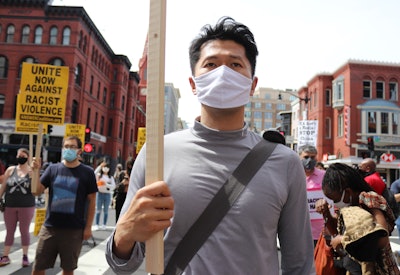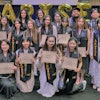Professors of Asian heritage at U.S. colleges and universities have faced daunting challenges in the past year, and those struggles have intensified in recent months as violence and hate incidents against Asian Americans have escalated.
The anti-Asian rhetoric of the Trump administration in connection with the COVID-19 pandemic fueled similar verbal attacks throughout the country, which ultimately led to physical assaults. But the mass killings of eight people, including six Asian women, in Atlanta in March sparked fear and outrage among Asian Americans, including those on college campuses.

The Stop AAPI Hate research group, which includes scholars from San Francisco State University, documented more than 3,795 hate incidents from the end of March 2020 to the end of February 2021. Reported incidents were verbal harassment (68.1%); shunning — i.e., the deliberate avoidance of Asian Americans — (20.5%); physical assault (11.1%); civil rights violations including workplace discrimination, refusal of service and being barred from transportation (8.5%); and online harassment (6.8%) of the total incidents.
“There has been a sharp ticking-up of requests to give talks to educate people very quickly about Asian American history,” says Dr. Madeline Hsu, professor of history at the University of Texas at Austin and former director of the Center for Asian American Studies. “A lot of people have been writing op-ed pieces in order to produce quick, easily digestible publications,” Hsu says, adding that others “have been approached by their institutions to conduct emotional, counseling support on campus.”
Hsu adds that, overall, in the wake of the Atlanta killings and other violent attacks, many of her colleagues “have been overwhelmed because of so many sudden demands on them.”
Hsu serves as president of the Immigration and Ethnic History Society, which publishes the Journal of American Ethnic History. “Anti-Chinese government sentiment makes it very difficult for Chinese Americans and Chinese immigrants,” Hsu says. “They may be ethnically Chinese but that does not mean they are politically Chinese.”














